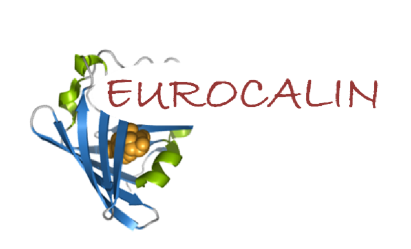Radboud University Nijmegen Medical Centre (RUNMC) will be involved due to its outstanding Hepcidin-specific clinical chemistry expertise and will be responsible for the development of analytical assays for the measurement of free and drug bound Hepcidin as biomarkers for target engagement in humans and animal models.
RUNMC is one of the main academic medical centres in the Netherlands with a strong track record in metabolic diseases. Broad expertise in this field is concentrated within the Institute for Genetic and Metabolic Diseases (www.igmd.nl) that allows scientists from different disciplines to perform research on fundamental aspects of genetic and metabolic diseases and to translate it to the clinic. The full understanding of iron metabolism disorders is an important research focus and is chaired by Professor Dorine Swinkels from the Department of Laboratory Medicine (DLM). Main profits of this research have been the development of both mass spectrometry (MS) and immunochemical assays for the quantification of serum hepcidin and the assessment of its role in human health and disease.
In 2005, the DLM was the first to employ time-of-flight (TOF) MS to measure hepcidin in urine. This assay was improved towards a current quantitative assay to measure bioactive hepcidin in human serum and urine using an internal standard for quantification. Furthermore, a thorough expertise was obtained on biomedical and pre-analytical factors that influence hepcidin levels in clinical samples. In 2008, the ―Hepcidinanalysis.com‖ initiative was founded to serve the scientific and medical communities with high-quality hepcidin measurements (www.hepcidinanalysis.com). Since then its product portfolio was extended with immunochemical hepcidin assays (IP protected for a 2-site ELISA assay), and hepcidin assays for animal models such as mouse and monkey. The laboratory has initiated and performed 2 rounds of world-wide sample send out (so called round robins) to decrease the differences in results (harmonize) obtained by the available hepcidin assays. The Nijmegen hepcidin assays have been successfully exploited in numerous clinical stud- ies world-wide. Additional strengths of the DLM can be summarized as follows: i) good access to patient material because firmly embedded in the clinic, ii) long standing experience in the devel- opment of immunochemical hormone assays, such as thyroid hormones, especially the exploitation of (equilibrium) dialyses techniques to distinguish free and protein bound hormonal ligands, iii) leading in laboratory quality assessment in the Netherlands and beyond.
For more information contact:
Dorine Swinkels
Department of Laboratory Medicine, Laboratory of Genetic, Endocrine and Metabolic diseases (LGEM 830).
Radboud University Nijmegen Medical Centre,
P.O. Box 9101,
6500 HB Nijmegen,
The Netherlands
Phone: +31 24 3618957
email: D.Swinkels " at " labgk.umcn.nl
RUNMC is one of the main academic medical centres in the Netherlands with a strong track record in metabolic diseases. Broad expertise in this field is concentrated within the Institute for Genetic and Metabolic Diseases (www.igmd.nl) that allows scientists from different disciplines to perform research on fundamental aspects of genetic and metabolic diseases and to translate it to the clinic. The full understanding of iron metabolism disorders is an important research focus and is chaired by Professor Dorine Swinkels from the Department of Laboratory Medicine (DLM). Main profits of this research have been the development of both mass spectrometry (MS) and immunochemical assays for the quantification of serum hepcidin and the assessment of its role in human health and disease.
In 2005, the DLM was the first to employ time-of-flight (TOF) MS to measure hepcidin in urine. This assay was improved towards a current quantitative assay to measure bioactive hepcidin in human serum and urine using an internal standard for quantification. Furthermore, a thorough expertise was obtained on biomedical and pre-analytical factors that influence hepcidin levels in clinical samples. In 2008, the ―Hepcidinanalysis.com‖ initiative was founded to serve the scientific and medical communities with high-quality hepcidin measurements (www.hepcidinanalysis.com). Since then its product portfolio was extended with immunochemical hepcidin assays (IP protected for a 2-site ELISA assay), and hepcidin assays for animal models such as mouse and monkey. The laboratory has initiated and performed 2 rounds of world-wide sample send out (so called round robins) to decrease the differences in results (harmonize) obtained by the available hepcidin assays. The Nijmegen hepcidin assays have been successfully exploited in numerous clinical stud- ies world-wide. Additional strengths of the DLM can be summarized as follows: i) good access to patient material because firmly embedded in the clinic, ii) long standing experience in the devel- opment of immunochemical hormone assays, such as thyroid hormones, especially the exploitation of (equilibrium) dialyses techniques to distinguish free and protein bound hormonal ligands, iii) leading in laboratory quality assessment in the Netherlands and beyond.
For more information contact:
Dorine Swinkels
Department of Laboratory Medicine, Laboratory of Genetic, Endocrine and Metabolic diseases (LGEM 830).
Radboud University Nijmegen Medical Centre,
P.O. Box 9101,
6500 HB Nijmegen,
The Netherlands
Phone: +31 24 3618957
email: D.Swinkels " at " labgk.umcn.nl
Radboud University Nijmegen Medical Centre

